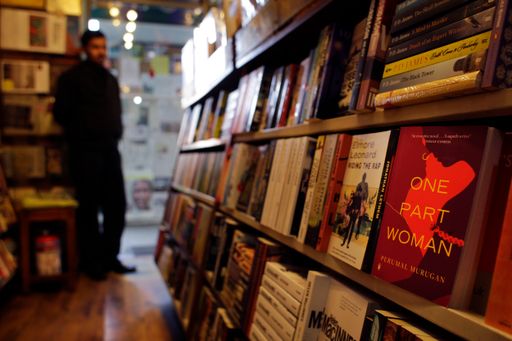Tensions simmer in India-administered Kashmir after the government installed an Ashoka emblem plaque at the revered Hazratbal Dargah shrine, which houses the holy relic of Prophet Muhammad’s hair.
The move has sparked protests and widespread criticism from religious and political groups in the India-administered Kashmir.
An elected leader from the National Conference (NC) party, Tanvir Sadiq, termed it a violation of fundamental Islamic principles.
In a statement posted on X, Sadiq said, “The installation of any idol, symbol, or emblem in a place of Islamic worship goes against the core tenets of Islam, the absolute oneness of God. This is not merely a symbolic act; it challenges the very foundation of Islamic belief.”
The Ashoka emblem, featuring four Asiatic lions standing back-to-back, was recently placed at the entrance of the shrine complex as part of what government officials called a “national integration initiative.”
During renovations inaugurated earlier this week by BJP leader Darakshan Andrabi, a marble plaque featuring the Ashoka emblem was placed within the shrine complex, the Deccan Herald reported.
Protests and threats
Some worshippers, as they gathered on the occasion of the Prophet Mohammad’s birthday (Eid Milad un-Nabi), viewed it as a violation of Islamic doctrine and protested.
Ruling BJP’s Andrabi condemned the protests as an “attack on the Constitution of India” and dubbed the protestors as “terrorists.”
She called to invoke the Public Safety Act (PSA) against protestors.
PSA has been termed a lawless law by rights groups and is used to arrest dissenters in the disputed territory.
Aga Syed Ruhullah Mehdi, a member of parliament from India-administered Kashmir, responding to the BJP leader, said that attempts to monumentalise egos inside Hazratbal are not acts of devotion but of arrogance, cautioning that such gestures deeply offend religious sentiments.
“People were rightly offended by this dangerous attempt to play with religious sensitivities for self-glorification,” he said.
Deep reverence
In December 1963, the mysterious disappearance of the holy Islamic relic triggered massive protests, widespread public outrage, and a sense of spiritual violation among Kashmiri Muslims, for whom the relic holds deep reverence.
Kashmir has remained at the heart of a decades-long dispute between nuclear-armed neighbours India and Pakistan, both of which claim the territory in full but control separate parts.
Armed resistance to New Delhi's rule began in 1989 in India-administered Kashmir, where many Muslim residents support independence or a merger with Pakistan.
India, which has stationed more than 700,000 troops in Kashmir, accuses Pakistan of fueling the insurgency. Islamabad denies the allegations and says it only extends political, moral, and diplomatic support to Kashmiris.
Kashmiris widely view the armed revolt as a legitimate freedom struggle.
The conflict has claimed tens of thousands of lives — including civilians, fighters, and troops — over nearly eight decades.
The UN has passed several resolutions advocating for a plebiscite in the region.




















